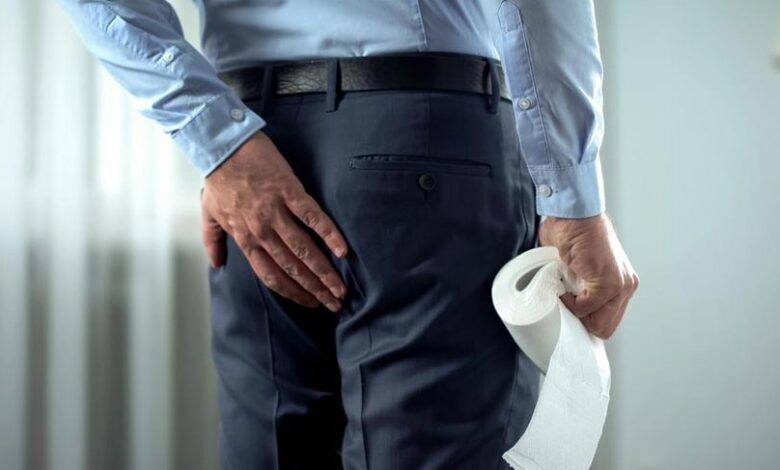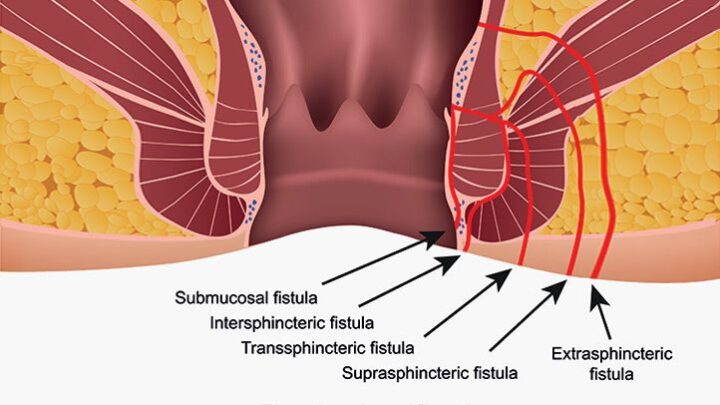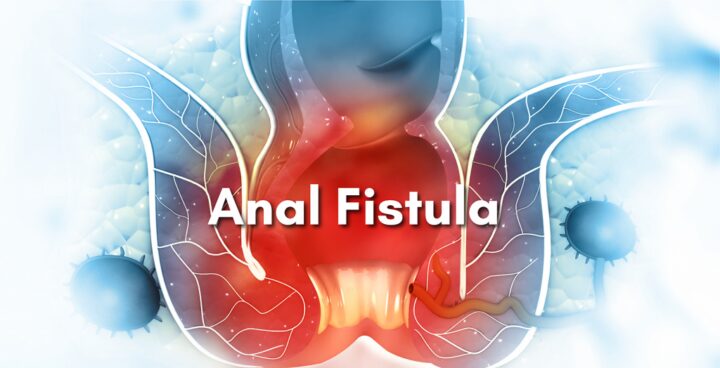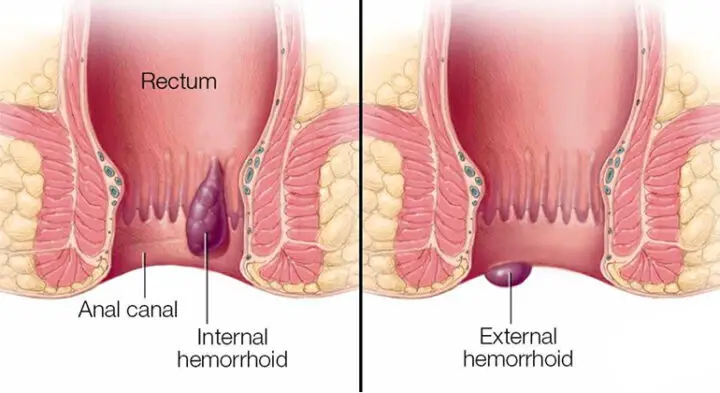Diagnosing & Treating Anal Fistula – Pristyn Care Hyderabad

An anal fistula is a small channel that connects the contaminated gland inside the anus to the other open skin in the anus. The anus is the external opening from where our body expels out food wastes. There are many tiny glands inside the anus that produce mucus, and when these glands are blocked, it becomes infected, leading to an anal fistula. An anal fistula is caused by the anal abscess, which is the infected cavity loaded with contaminated pus. An anal fistula is not a life-threatening condition, but it causes painful accesses with continuous discharging.

The Different Types of Anal Fistula
Depending upon the region around the anus sphincter, the anal fistula can be categorized into the following:
- Extrasphincteric Fistula
- Suprasphincteric Fistula
- Transsphincteric Fistula
- Intersphincteric Fistula
- Superficial Fistula
Why is Anal Fistula Caused?
As mentioned, the majority of the anal fistula cases are caused by an anal abscess. Some of the other factors causing anal fistula in patients are:
- Abscess – Abscess keeps on accumulating fluids discharged from the body, including urine, stool, etc. It works as the breeding ground for infection and bacteria. As the abscess breaks or punctures, the infected pus creates a fistula on the skin or other organs.
- Crohn’s Disease – Crohn’s diseases in many patients also cause anal fistula
- Trauma
- Sexually Transmitted Diseases
- Cancer
- Tuberculosis
- Diverticulitis
The Complications of Anal Fistula
Sepsis, drainage, peritonitis, and perforation are some of the complications caused by Anal Fistula.
- Fistula Drainage & Abscess – Anal fistula contains a foul-smelling fluid that keeps on leaking, and it makes the patients experience more painful abscesses.
- Sepsis – Sepsis is a fatal condition caused due to an unmanageable bacterial infection that spread across the body. It causes symptoms, including confusion, chills, rashes, fever, rapid breathing, disorientation, and rapid heart rate.
- Peritonitis – Anal Fistula may also cause infection and inflammation of the peritoneum, which is the fistula’s major complication.
How is Anal Fistula Diagnosed?

Doctors diagnose the anal fistula by evaluating the region around the anus. In the examination, the doctor will check the skin opening, referred to as the fistula tract. From the opening, the depth of the opening will be measured by the doctor. It is also checked in which direction the track is going. In some cases, patients experience leakage or drainage from the external fistula tract.
Some anal fistulas are not visible with naked eyes as they are not present on the skin’s surface. So, in such a condition, the doctor would perform other tests to diagnose anal fistula.
- Anoscopy – It is the medical procedure where a specialized instrument is used by doctors to see the interior of the rectum and anus.
- Ultrasound and MRI – Doctors may also prescribe MRI or Ultrasound of the anal region to better view the fistula tract and anus region.
- Doctors may also examine the patients in the operating room, which is performed under general anesthesia, and it helps diagnose the anal fistula better.
If the anal fistula is discovered, doctors may ask the patient to undergo further tests to check if the fistula is caused due to inflammatory diseases in the intestine, Crohn’s disease, or other factors. Around 25% of the patients with Crohn’s disease develop an anal fistula.
X-rays, Blood tests, and Colonoscopy are some of the other procedures to diagnose anal fistula. Colonoscopy is performed with a lighted, flexible instrument inserted into the colon via the anus and is performed under mild anesthetic.
How is Anal Fistula Treated?

Treatment for an anal fistula can get extremely challenging both for the doctor and patient. Doctors usually prescribe medications to control the pain, and patients need surgery to treat the anal fistula permanently.
The anal fistula procedure is performed as an outpatient procedure. But, the severe and chronic fistula patients may need a short hospital stay for observation post-surgery.
Treating patients with anal fistula caused by Crohn’s disease can be challenging. There is a high risk of developing fecal incontinence after surgery. So, doctors mainly prescribe medications as primary treatment. Surgery is only recommended to treat the infection, and it is offered in a combination of primary medications.
Some of the common surgeries for anal fistula are:
- Fistulotomy – Anal fistula that infects a small number of sphincter muscles can be treated with fistulotomy. The success rate of the surgery is around 97%. The procedure involves making an incision on the muscles and skins over the tunnel to create a groove, and it heals inside out post-surgery.
- Seton Placement and Surgery – The severe anal fistula is treated with a specialized medical-grade drain, Seton. It takes around six weeks, followed by a surgical procedure for repairing the tissues. Seton helps drain the pus from the fistula and eases the inflammation efficiently with no pain and easy bowels.
- Laser Surgery – Laser procedure is becoming a common solution for anal fistula patients. Laser energy is released using radial fibre to destroy the epithelium of the anal fistula. The procedure is faster and can be performed within 30 minutes by experts. The surgeon diagnoses the severity of the fistula and treats it with optimal care using laser surgery.
It is extremely important to know the recovery time and post-surgery care before leaving the hospital. Discomfort and pain in the region of surgery are common. The majority of the patients respond well to the surgical procedure for anal fistula and experience a faster recovery after the surgery.
Certain things need to be followed after the anal fistula surgery to recover faster. It includes:
- Painkillers to control the pain
- Soaking the area in warm water 2-3 times a day
- Consuming a fibre-rich diet
- Stool softeners and laxatives for a week post-surgery
When the anal fistula’s symptoms get serious or worsen with time and no remedies showed up results, you must seek an appointment from Pristyn Care with a specialized doctor to effectively treat anal fistula. The treatment for the fistula depends on the severity and age of the patients. Contact the specialized doctor today to get the right treatment for anal fistula.

